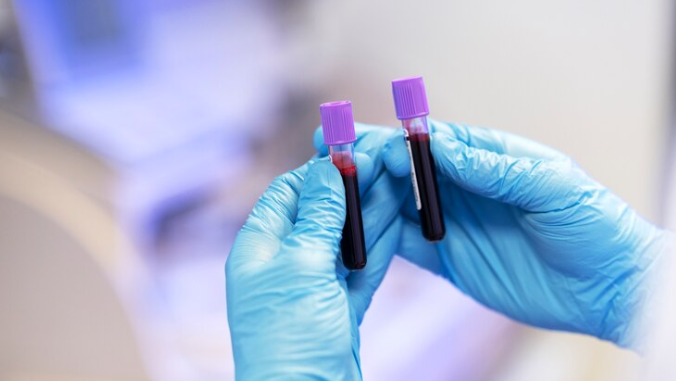Allergies can be frustrating and even debilitating for those who suffer from them. From sneezing fits and itchy eyes to more severe reactions like hives or breathing difficulties, allergies can disrupt daily life and impact overall well-being. One of the key ways to identify and understand your allergies is through diagnostic testing, specifically the IgE Total Test. This test plays a crucial role in uncovering the root cause of allergic reactions, enabling better management and treatment. In this blog post, we will explore what the IgE Total Test is, how it works, and why it is essential for anyone dealing with allergies.
What Is the IgE Total Test?
The IgE Total Test is a blood test that measures the total level of Immunoglobulin E (IgE) in your bloodstream. IgE is a type of antibody that your immune system produces in response to allergens, such as pollen, dust, pet dander, certain foods, or insect stings. When you come into contact with an allergen, your immune system may overreact, producing IgE antibodies that trigger allergic symptoms.
The test doesn’t identify specific allergens; instead, it provides an overall measurement of your IgE levels. Elevated IgE levels often indicate that your body is responding to an allergen, even if the exact cause is not immediately clear. This test serves as a stepping stone toward pinpointing specific allergies through further testing, such as skin prick tests or specific IgE tests.
Why Is the IgE Total Test Important?
Understanding the cause of your allergic reactions is crucial for proper treatment and prevention. The IgE Total Test is often one of the first steps in this process because it can confirm whether your symptoms are related to allergies. This is particularly useful if you experience frequent, unexplained allergic reactions or if your symptoms seem to be triggered by multiple sources.
Here’s why the IgE Total Test is essential:
- Early Detection: The test can help detect allergies before symptoms become more severe. For people who experience mild symptoms but are unsure of the cause, this test provides valuable insights.
- Comprehensive Overview: While it doesn’t identify specific allergens, the IgE Total Test gives an overview of your immune system’s response. This information can guide your healthcare provider in recommending further tests or treatments.
- Guiding Treatment: If your IgE levels are elevated, your healthcare provider may recommend additional testing to pinpoint the specific allergens. Once identified, a targeted treatment plan can be developed, including lifestyle changes, medication, or allergy immunotherapy.
- Monitoring Progress: For individuals already undergoing treatment for allergies, the IgE Total Test can be used to monitor the effectiveness of treatments over time.
How Does the IgE Total Test Work?
The Test is a simple blood test. Here’s what you can expect:
- Preparation: Generally, no special preparation is required for the test. However, you should inform your healthcare provider about any medications or supplements you are taking, as they may affect your results.
- Blood Sample: A healthcare professional will draw a small amount of blood from a vein, typically in your arm. The procedure is quick, and any discomfort is usually minimal.
- Laboratory Analysis: The blood sample is sent to a laboratory, where it is analyzed to determine the total amount of IgE in your blood. Results are usually available within a few days.
- Interpreting Results: Your healthcare provider will review your IgE levels and discuss what they mean in relation to your symptoms. Elevated IgE levels may indicate the presence of an allergic condition, prompting further testing to identify specific triggers.
What Do the Results Mean?
- Normal IgE Levels: If your IgE levels fall within the normal range, it doesn’t necessarily mean you’re free from allergies, as some allergic conditions may not cause a significant rise in IgE levels. However, it may suggest that your symptoms are not allergy-related or are mild.
- Elevated IgE Levels: Higher-than-normal IgE levels suggest that your body is reacting to one or more allergens. This could be a sign of conditions like allergic rhinitis (hay fever), asthma, eczema, or food allergies. Your healthcare provider will likely recommend further tests to identify the specific allergens responsible.
When Should You Consider Taking the IgE Total Test?
You should consider an IgE Total Test if:
- You have persistent or recurrent allergic symptoms, such as sneezing, itching, hives, or breathing difficulties.
- You suspect you may have an allergy but are unsure of the exact trigger.
- Your symptoms occur seasonally or in response to certain environments (e.g., outdoors, around pets, or after eating specific foods).
- You have a family history of allergies or asthma, which may increase your risk.
Conclusion
The IgE Total Test is a valuable diagnostic tool that can help you take control of your allergies. By providing an overview of your immune system’s response to allergens, it sets the stage for more specific testing and personalized treatment plans. Whether you’re experiencing mild symptoms or severe reactions, understanding your IgE levels is the first step toward finding relief and improving your quality of life.
If you suspect you have allergies or are dealing with unexplained symptoms, talk to your healthcare provider about the IgE Total Test. With the right information and guidance, you can identify the root cause of your allergies and take proactive steps to manage them effectively.



More Stories
Your Pharma Future Starts Here: Oasis Bio Bloom in Haryana
Top PCD Pharma Franchise Companies in Bihar – Join the Best
Natural vs. Synthetic Estrogen Therapy: What’s Best for You?